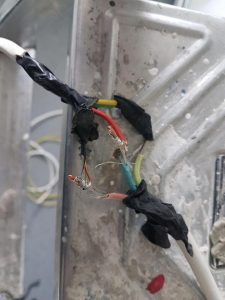Would you a) Be  alerted by your smoke alarm? b) I guess my smoke alarm would alert me but I don’t test it, or c) What smoke alarm, do I need one?
alerted by your smoke alarm? b) I guess my smoke alarm would alert me but I don’t test it, or c) What smoke alarm, do I need one?
Does this scenario seem a bit daft? It will if you have smoke alarms fitted in your home and you test them on a weekly basis – if this is you – then you are in the MINORITY of people who have a smoke alarm in their home AND test it regularly.
If you are a landlord or business – are you staying legal?
The Regulatory Reform Fire Safety Order 2005 (FSO) is the primary legislation for all non-domestic premises in England and Wales, including the common parts of blocks of flats and houses in multiple occupation (HMOs). Failure to comply with the FSO is an offence punishable by hefty fines or imprisonment.
So where do you start particularly if you are a new landlord? The good news is that you are in safe hands with Fulcher Edwards.
We can take care of the whole fire safety requirements and legalities of your rental properties and business premises in London and Hertfordshire.
We don’t come and install whats needed and then leave, we design each system for every client to ensure its effectiveness in the event of fire. It is then installed by an expert team of compliant, qualifed electricians to current British Standards and then tested. This is all part of our standard service.
Our service does not end here……we also offer maintenance services – you can rely on Fulcher Edwards to not only install your fire system, but to also maintain it – we’re proud to continue to put our name to our installations long after the first install. We also provide fire warden training as well as fire extinguisher installation and maintenance.
We have many clients in London and Hertfordshire, both big and small – and our guranteed high standard of work is ensured across each and every installation whatever the size.
We also work with many domestic customers who are keen to ensure their home safety. Fire safety goes much further than a cheap battery alarm, give us a call to discuss your requirements – Fulcher Edwards can install a great fire safety package in your own home – without all the annoying beeps that keep you up all night.
For more information about our fire safety services we offer click HERE
You will also find information about the complimentary services offered by Fulcher Edwards including emergency lighting services.
Don’t compromise your safety – choose Fulcher Edwards for all your fire needs.



